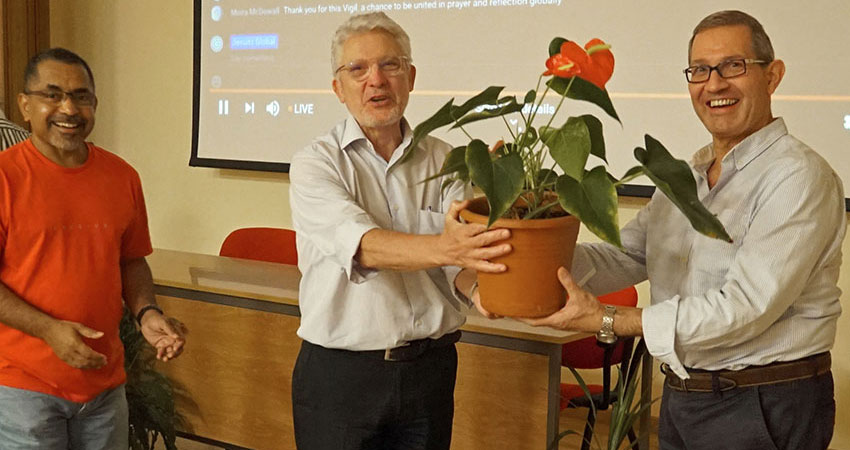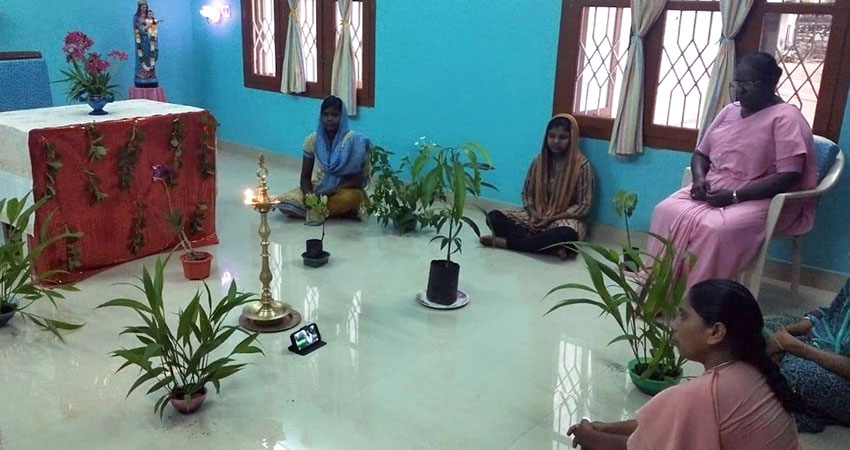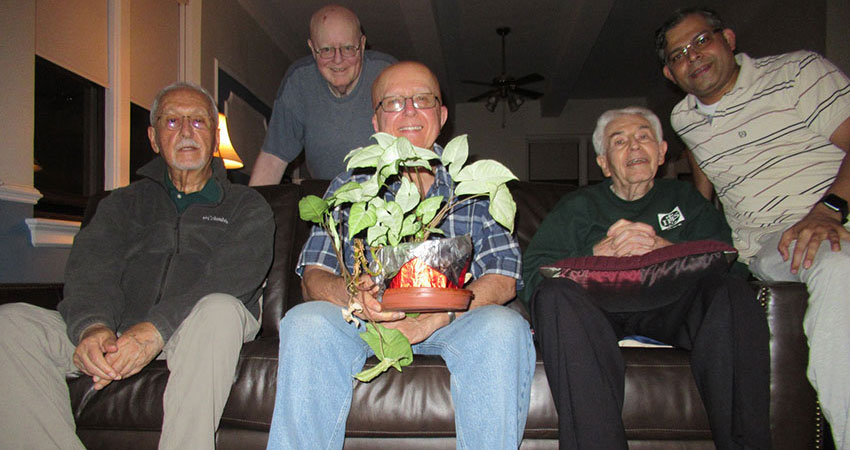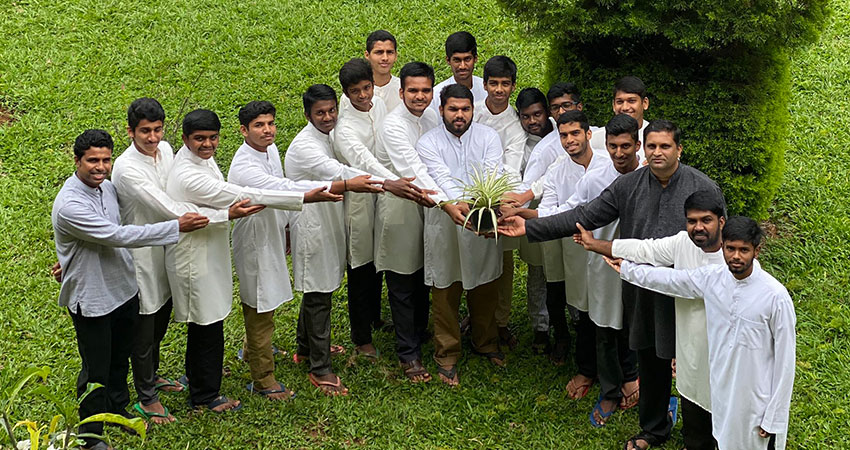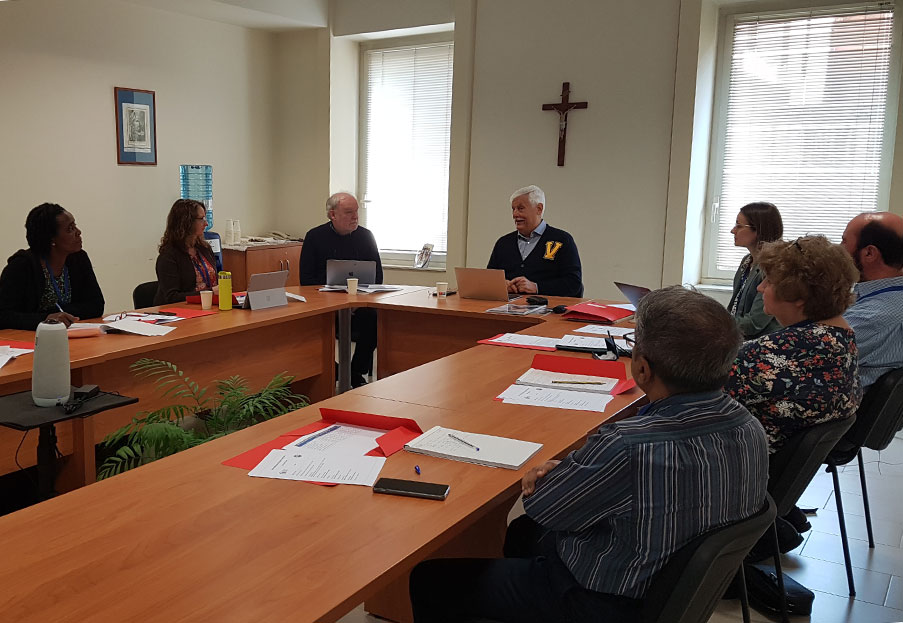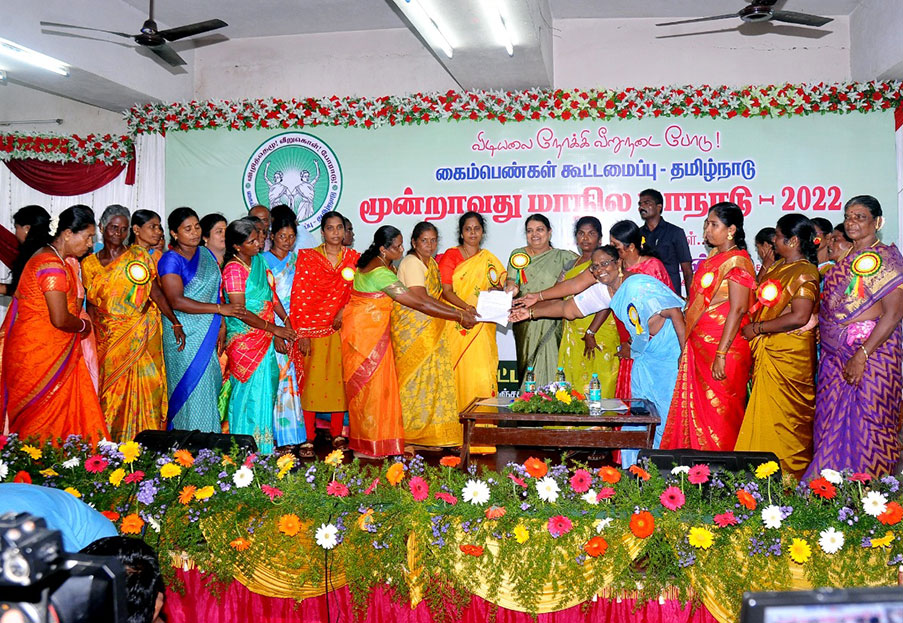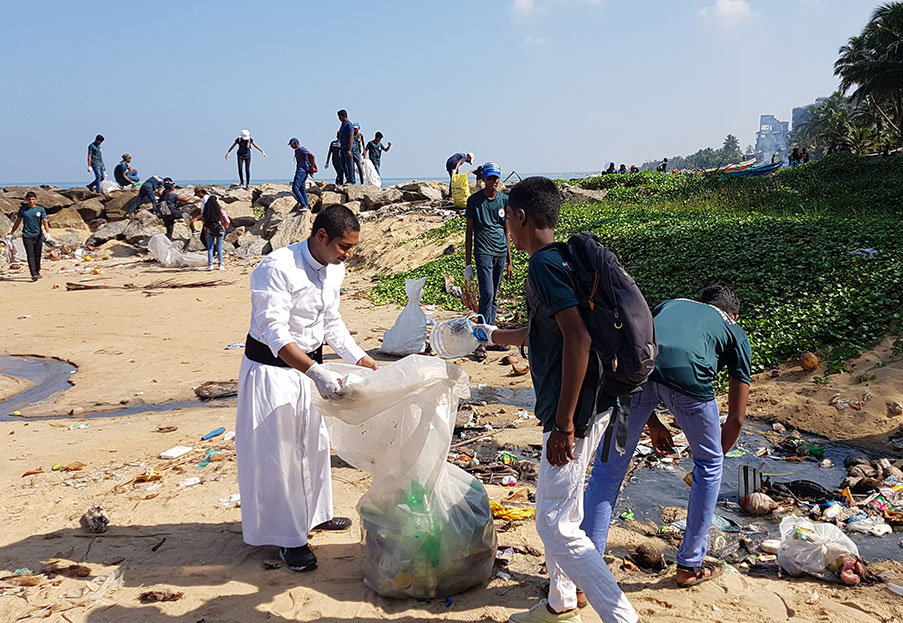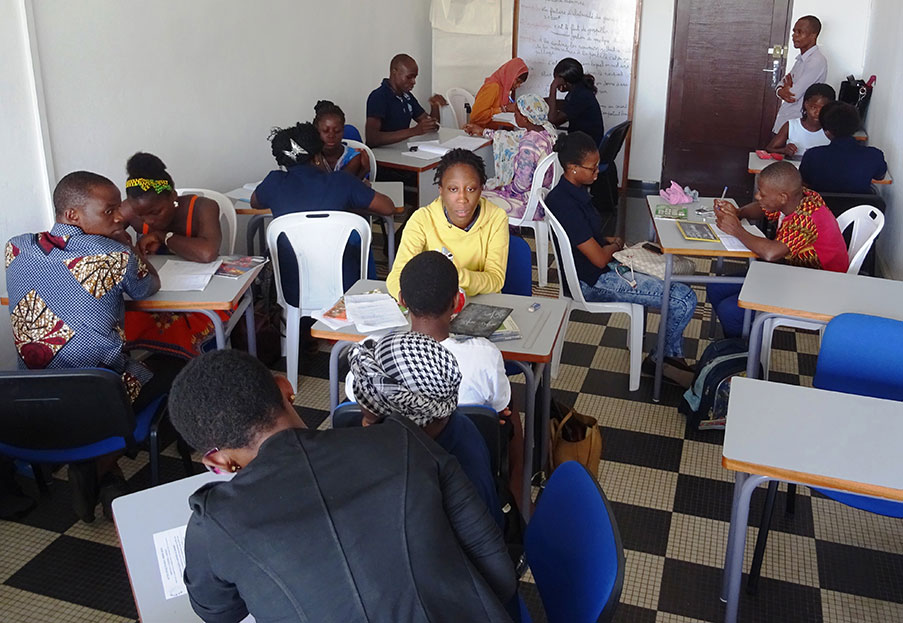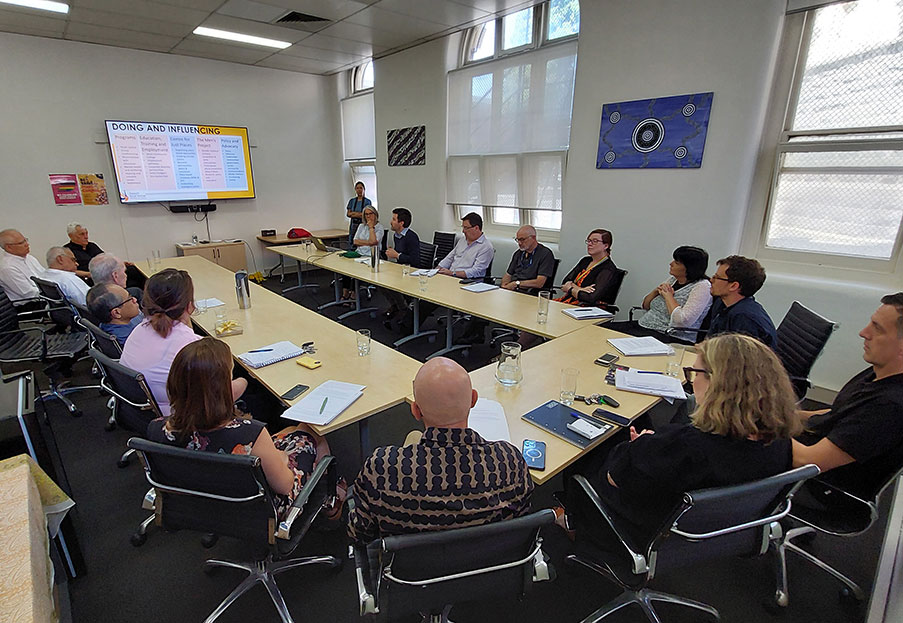Global Ignatian Prayer Vigil ‘Breathing Together’ for the Season of Creation
By Valeria Méndez de Vigo
Last Friday, September 25th, the Ignatian Family worldwide participated in the Global Ignatian Prayer Vigil Breathing Together, organized by various Jesuit works and networks under the umbrella of the Social Justice and Ecology Secretariat. In order to have an international reach, the Vigil was broadcast live in three different time zones (8 pm in Manila/Rome/New York) and simultaneously streamed in English and Spanish. Over 15,000 people participated in the vigil during or around the time of the live broadcasts. The vigil integrated prayer with testimonies, reflections, music, and some symbolic and interactive elements.
“I was deeply touched by
the response of people to the prayer vigil,” said Fr. Xavier Jeyaraj SJ,
Secretary of Social Justice and Ecology. “In fact, the vigil was an amazing way
of connecting people to the call of Pope Francis to care for our common home,
along with the four Universal Apostolic Preferences (UAPs) of the Society of
Jesus. The vigil was a unique opportunity to show the way to God (UAP1); to
care for our common home, particularly the three lungs of the earth (UAP4); to walk
with the poor indigenous people in those 3 regions whose rights and dignity
have been violated (UAP2); and finally, how to accompany the young indigenous
people by listening to their testimonies (UAP3), conducted on a day when young
people were participating in a climate strike throughout the world.”
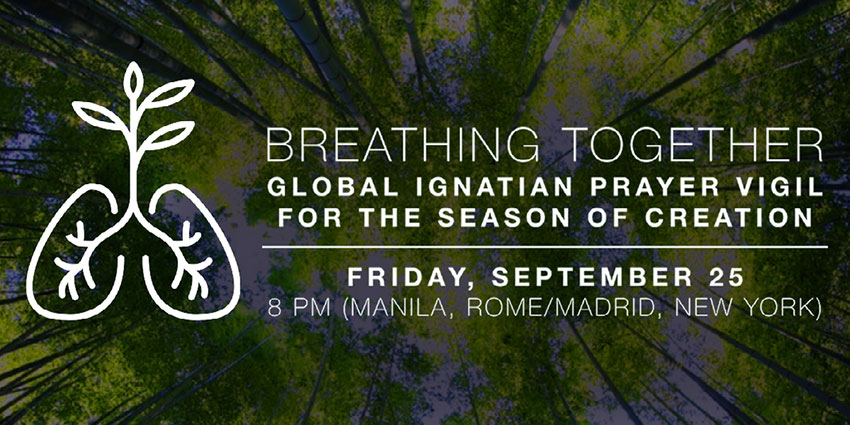
On the Global Climate Action Day, Breathing Together wanted to emphasize the need to defend the lungs of the earth - in particular, the Congo Basin, the Asian forests and the Amazon - “literally and figuratively on fire,” as Cecilia Calvo, of the Jesuit Conference of Canada and the United States noted. “In these essential biomes, we see environmental destruction and loss of “human, social and cultural richness” caused by a mentality of exploitation,” said Calvo. “Climate change, irresponsible mining practices, consumerist driven overproduction, the privileging of GDP over human development - are but manifestations of this disruption. Vulnerable communities - children, the elderly, indigenous people, migrants - are left most exposed to this socio-environmental crisis.”
This
was also noted by the indigenous community representatives themselves. Amba
Lobota Bongila, a member of the Ekonda community, in the Democratic Republic of
the Congo (DRC), said: “The forest belongs to us. It belongs to our ancestors.
But today it has been destroyed and we, the owners of the forest, are not
getting anything. Our rivers have become polluted, animals have run away,
caterpillars are not growing anymore on threes. Loggers enrich themselves at
the expense of indigenous peoples.” Dorotheé, of the Baka community in the
Yahuma territory of the DRC, added: “Our community is threatened by the loss of
their lands, land expropriation, by the Bantu neighbors, forest companies,
mining companies, and others seeking natural resources.” Enesio Martins, who
belongs to the Ticuna community in Amazonia emphasized: “We have been affected
by the forest fires, by the deforestation carried out by the big multinational
corporations.” Jason Menaling from Mindanao in the Philippines noted: “I hope
the rest of the world will not be deaf to the cries of Indigenous Peoples. We
want a future where we live in peace, nurturing our connection to our
environment and to each other.”
“Never has our commitment to care for our common home and to heal this broken world been more urgent. We cannot heal this earth by ourselves. The healing begins when we join others, especially the most affected: the poor, indigenous, migrants and refugees and become collaborators in the care of our common home,” noted Fr. Arturo Sosa, Superior General of the Society of Jesus. “But change will happen only if we make room for it,” says September Kelokelo, a young activist from Papua New Guinea.
The
vigil emphasized that change must start with an individual and collective
conversion to integral ecology, as well as a transformation of public policies.
Hence, the Vigil’s final prayer of commitment called on the international
community and world leaders to listen to “the cry of the earth and the cry of
the poor and to take effective action, guaranteeing the well-being (buen vivir)
of all and the equilibrium of our Common Home.”
Watch the Vigil:
